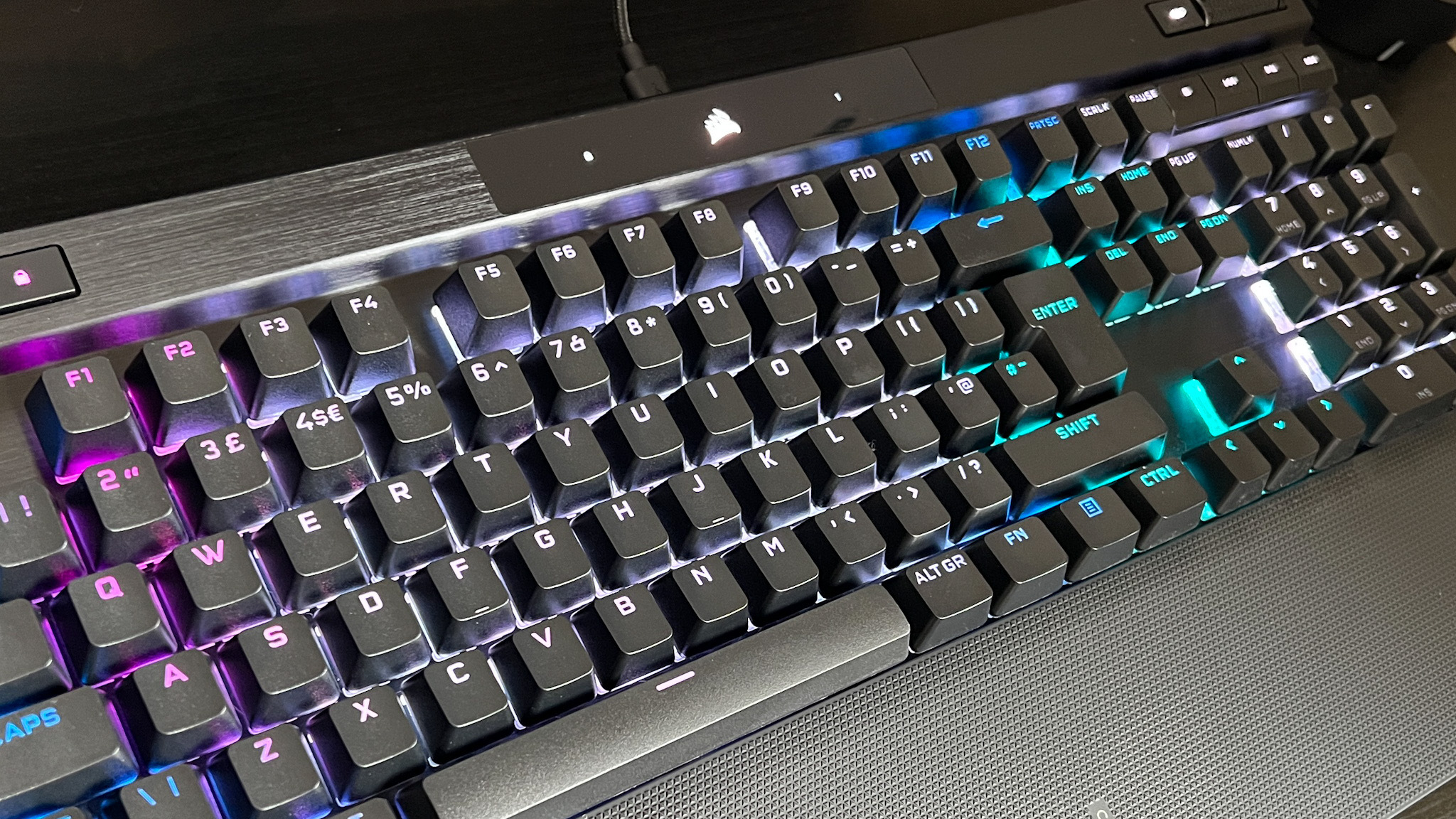GamesRadar+ Verdict
The Corsair K70 RGB Pro is exactly what it says on the tin; built for pros. While the everyday player may not get the full advantage of the Tournament button or 8K hyper-polling, the speed on offer here is certainly still just as impressive during weekend sessions. Switch reverberation may be a problem with certain configurations, and it may sit a little large on your desk, but overall this is a solid competitive powerhouse.
Pros
- +
Dedicated tournament switch
- +
Excellent macro support
- +
Nicely speedy everyday experience...
Cons
- -
... though 8K hyper-polling didn't make itself known
- -
Significant reverberation
- -
Large, heavy design
Why you can trust GamesRadar+
The Corsair K70 RGB Pro is, as you might have guessed, the next step from the brand's recognizable K70 MK2 gaming keyboard. There's no doubt about it, this is a deck for competitive players. With a tournament-ready feature set, and super speedy response times, everything about the K70 RGB Pro is designed with speed in mind. That goes a long way to explain the lofty $169.99 price tag - a cost that will likely lock out many everyday players. Where other K70 gaming keyboards tick all the right boxes, however, the RGB Pro ticks them all more.
You're getting more onboard profiles, lower latency, speedy AXON processing, PBT keycaps, and other quality of life features like a detachable USB-C cable and a mid-ground level of elevation. Of course, there's also a dedicated Tournament switch featured to make sure you're competition-ready at the drop of a hat.
With an esports-focused design, the K70 RGB Pro is expensive, but is stacked with a range of additional features to make good on its price tag. However, with the previous MK.2 model readily available for between $10 and $40 less, we put the Corsair K70 RGB Pro to the test against the best gaming keyboards on the market.
Design
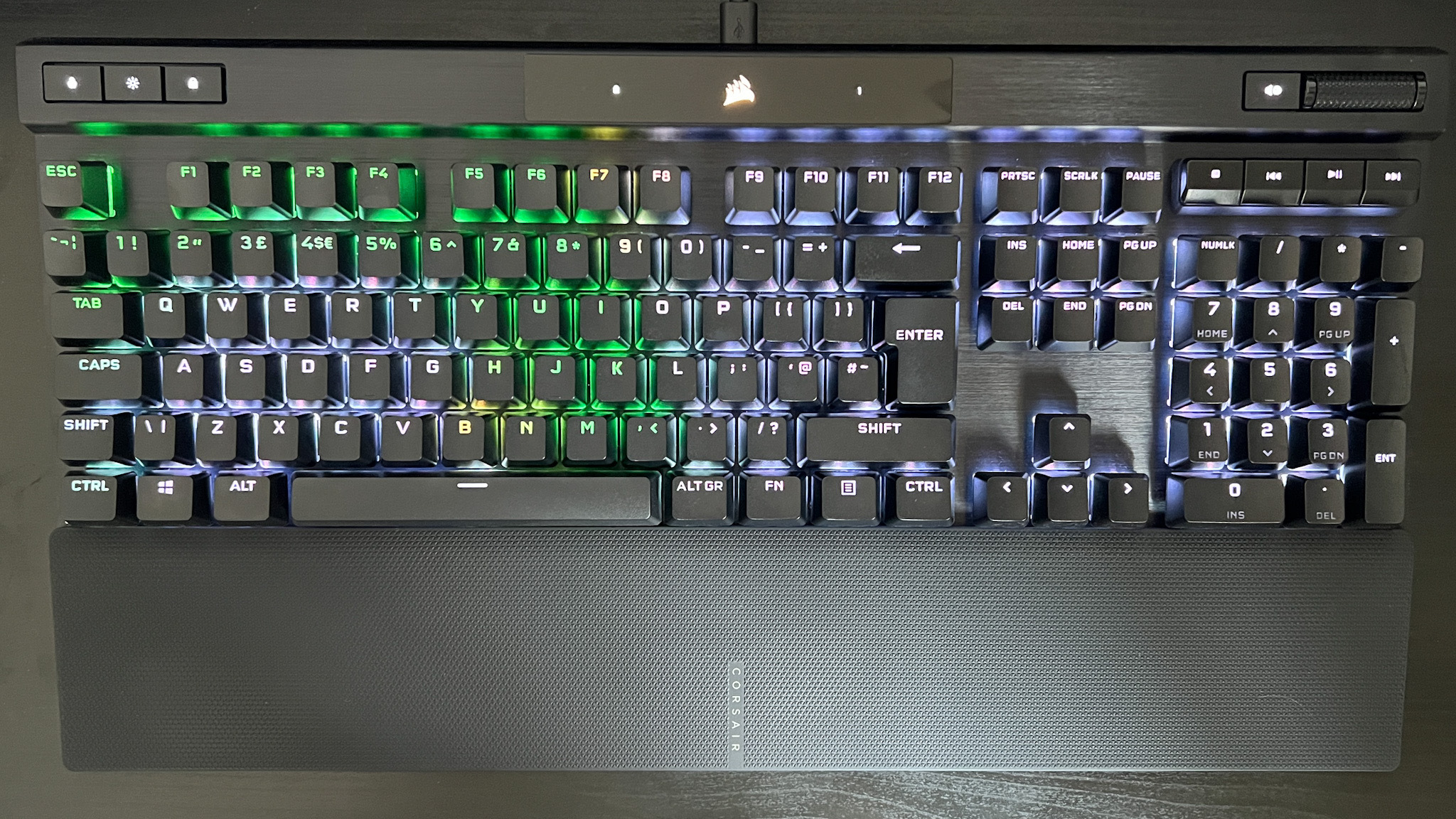
At first glance, Corsair hasn't ripped up the rule book with the Pro release. You're still getting the classic full-sized deck with a fairly chunky design overall. This is no dinky keyboard ready to throw in a backpack, which is where the Corsair K70 RGB Pro may fall down first.
For all the excellent speeds (which we'll see in just a moment), this is a price tag that just about nudges the esports specialist crowd. Those players aren't going to want to lug this 2.54-pound piece of equipment around all day. Measuring in at 17 x 6.5 inches across the top, this beast certainly isn't going anywhere fast.
Of course, if you're keeping your setup firmly on your desk, this is going to be a bonus. In all our Apex Legends thrashing, the K70 RGB Pro remained firmly in place - something more portable esports keyboards like the Razer Huntsman Tournament Edition will struggle to replicate. Still, it takes a considerable amount of space away from your mouse movements, with its full num-pad and cursor-control key layout, thick top bezel, and tall wrist rest. Those playing faster FPS titles who still want the option of taking their setup on the road may want to take a look at the Corsair K70 RGB TKL for its smaller form factor instead.
At the same time, the brushed aluminum top plate and hefty frame mean the K70 RGB Pro certainly feels like it can go the distance - everything feels durable and reliable overall.
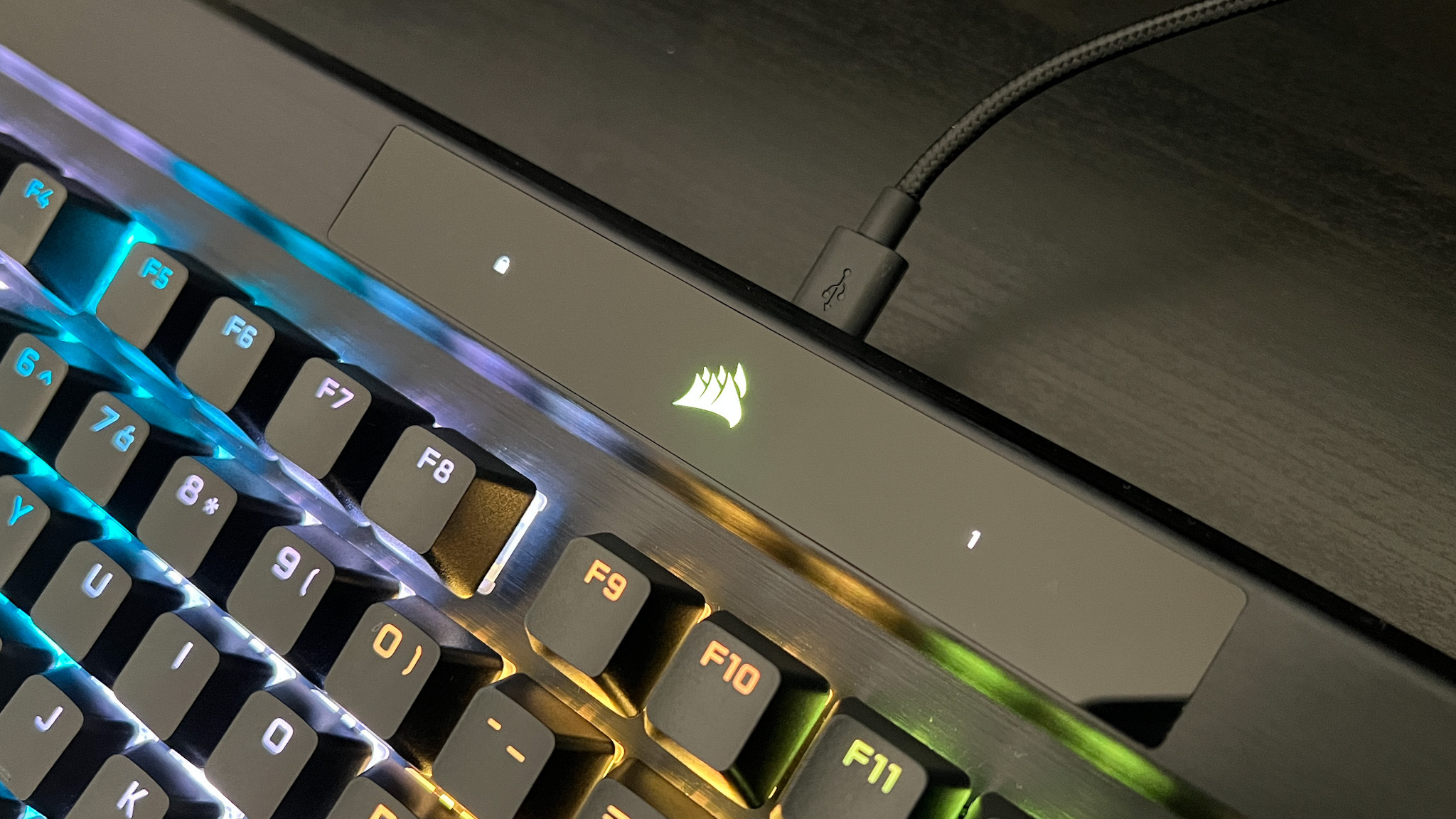
The Corsair logo placed at the top of the deck now glows inline with the per-key RGB settings of the keyboard as a whole. I was a little disappointed with the strength of these under-key LEDs (they're nowhere near as vivid or bright as a HyperX or Razer keyboard), and the logo itself does judder between colors - never quite keeping up with the smooth shift running across the deck itself.
However, the doubleshot PBT keycaps felt excellent under-hand, offering a premium feel only complimented by the durable design and brushed aesthetic running along the top plate.
Features
Average price: $169.99 / £179.99
Type: Mechanical
Size: Full
Switches: Cherry MX
Keycaps: Double-shot PBT
Media keys: Dedicated keys, volume dial
Wrist rest: Magnetic
USB passthrough: None
That feature list is really where the Corsair K70 RGB Pro shines. There's a lot on paper to get excited about here; 8K hyper-polling courtesy of Corsair's AXON processing technology, a dedicated Tournament button to switch off your macros and RGB, up to 50 onboard profiles, and on the fly macro recording. That's a solid spread for anyone on the hunt for a competitive deck, especially considering that cost starts to look pretty good compared to Razer's $199.99 price tag on the 8K Razer Huntsman V2.
I'll have to say it, though, I prefer Razer's linear switches to the Cherry Browns in my test device. This is, of course, a matter of personal opinion - I know many players who swear by the heavier switch. It's worth noting, though, that this is a particularly scratchy implementation of the Browns, though that could all change if you opt for the more popular Red model. Corsair ships the K70 RGB Pro with Cherry MX Red, Silent Red, Blue, Brown, and Speed Silver switches, so there's plenty to choose from here - far more than the original K70.
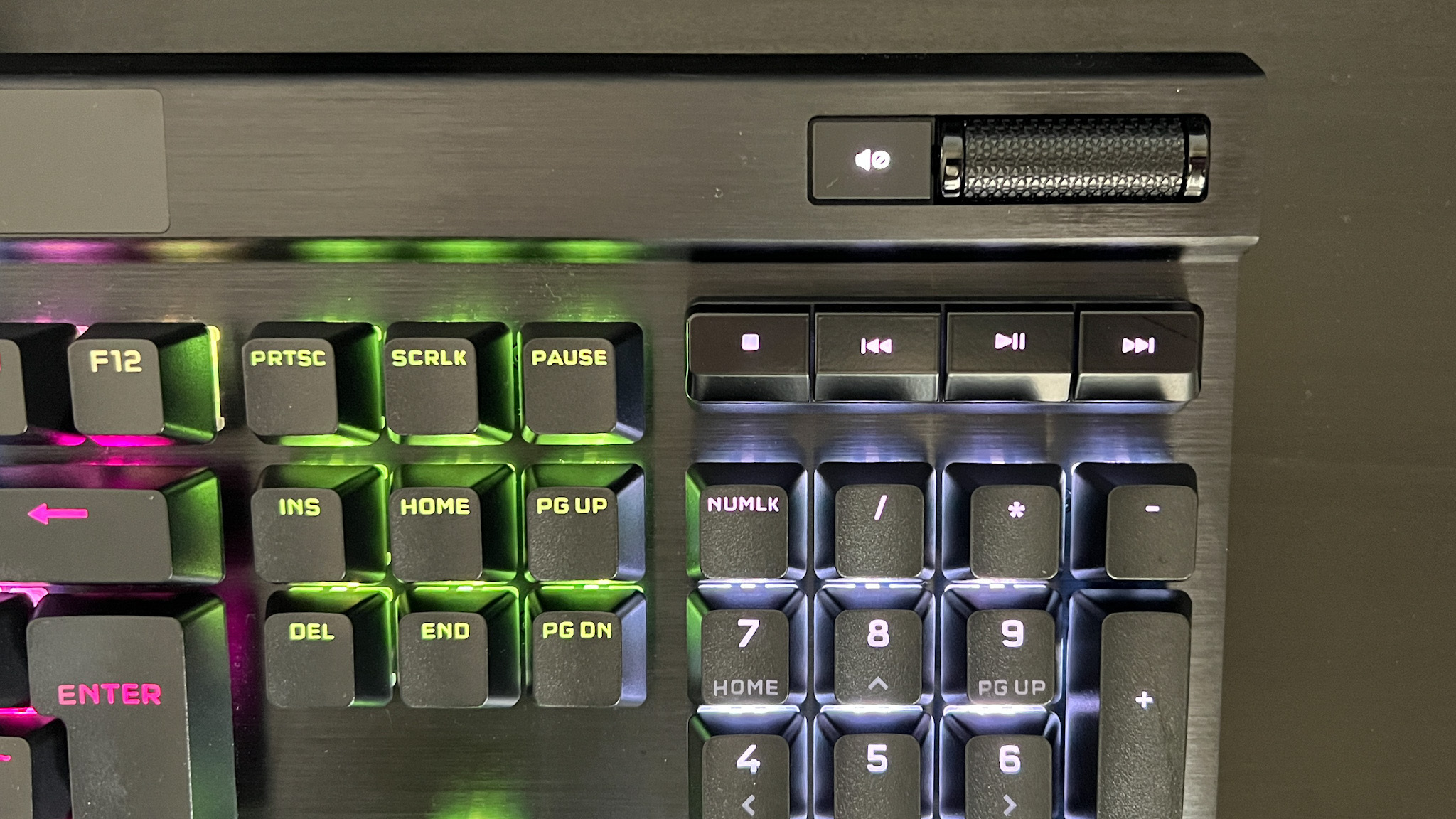
All in all, though, I'm not convinced many will be using the Corsair K70 RGB Pro's more niche features. The tournament switch will definitely come in handy should you need peace of mind in a stringent competitive setting, but I didn't find myself reaching for it once during everyday play. Similarly, the 8K hyperpolling wasn't especially noticeable during my testing either.
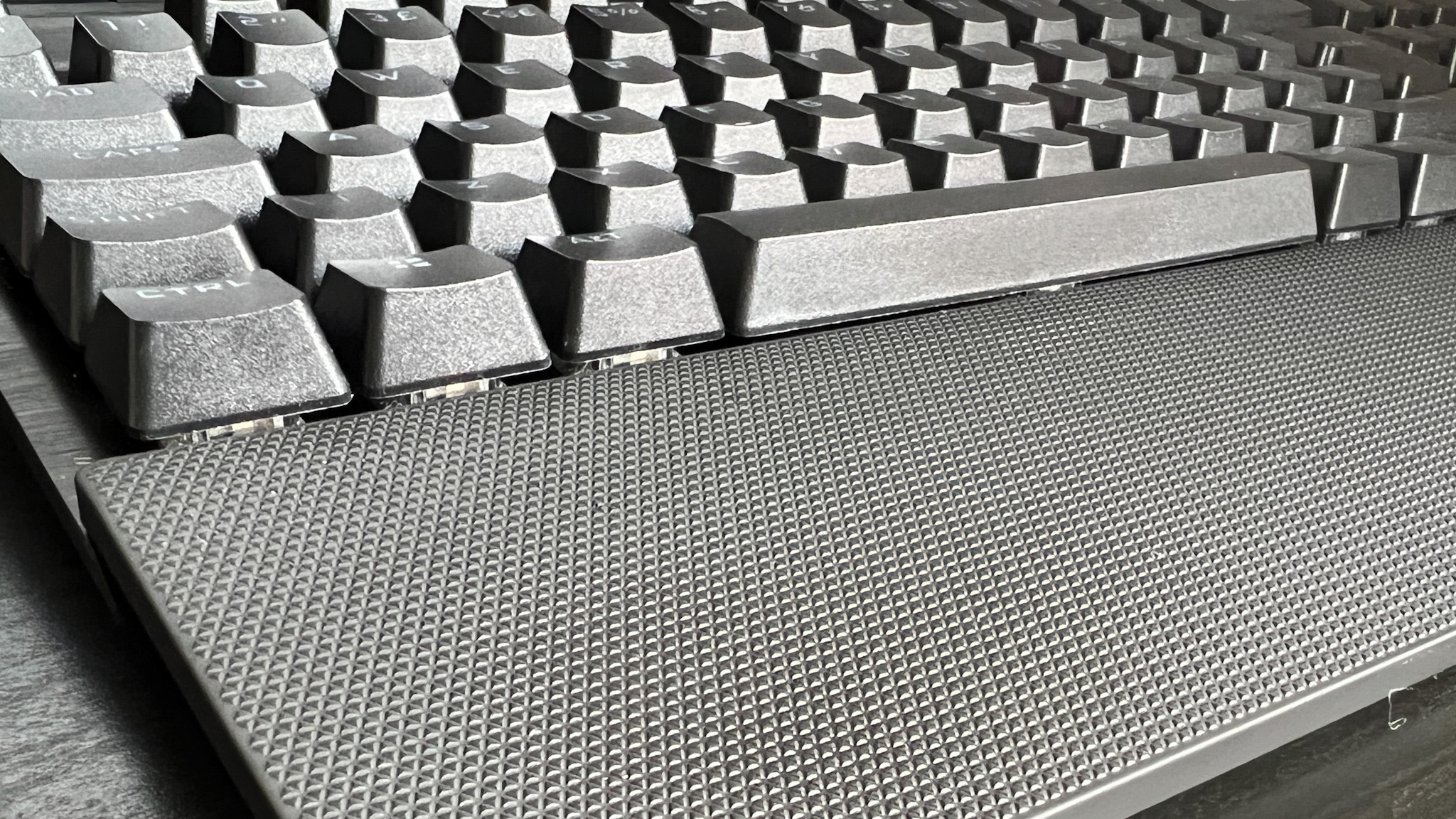
At the baseline, you're picking up a wired (detachable) USB-C connection, a suite of dedicated media controls (four playback buttons, a mute button, and a volume roller), and a magnetic wrist rest that offers a nice tactile pattern for greater grip but can be a little irritating on the skin after a while.
Performance
As mentioned before, I did find the particular Brown switches inside the Corsair K70 RGB Pro to be a little too heavy for my taste - quickly proving fatiguing in both gaming and typing. That did make for fool-proof performance without any accidental taps, but that's an upside that doesn't need to come with such a sacrifice in twitch-reflex comfort.
Of course, you can always configure the K70 RGB Pro with a different set of switches; but that might not stop the case ping. The sound reverberation around this whole board was some of the worst I've experienced, with every keypress echoing across insides the deck, bouncing from corner to corner.
Aside from the audio experience, though, the Corsair K70 RGB Pro certainly made good on its promise of speed. Every move felt snappy and responsive, offering up some of the lowest latencies my eye could spot during gameplay. Everything felt natural once I was in the groove, flinging macros across the board like it was nothing and holding a whole wad of programmable keys under my fingertips. The experience was markedly better for gameplay than it was for everyday productivity, but I was impressed with the overall tactile feel of the materials, the incredible response times, and the durable heft on offer here.
Like the Razer Huntsman V2, clocking the hyper-polling all the way up to 8K didn't yield too much of a result. I was running Apex Legends on an Alienware M15 R7 rig, boasting an i7-12700H processor, and certainly couldn't feel an impact during my everyday play. I'm no Apex legend, though, so more professional players may well feel an extra burst of speed, and the general experience was still breakneck enough to suit competitive maneuvers.
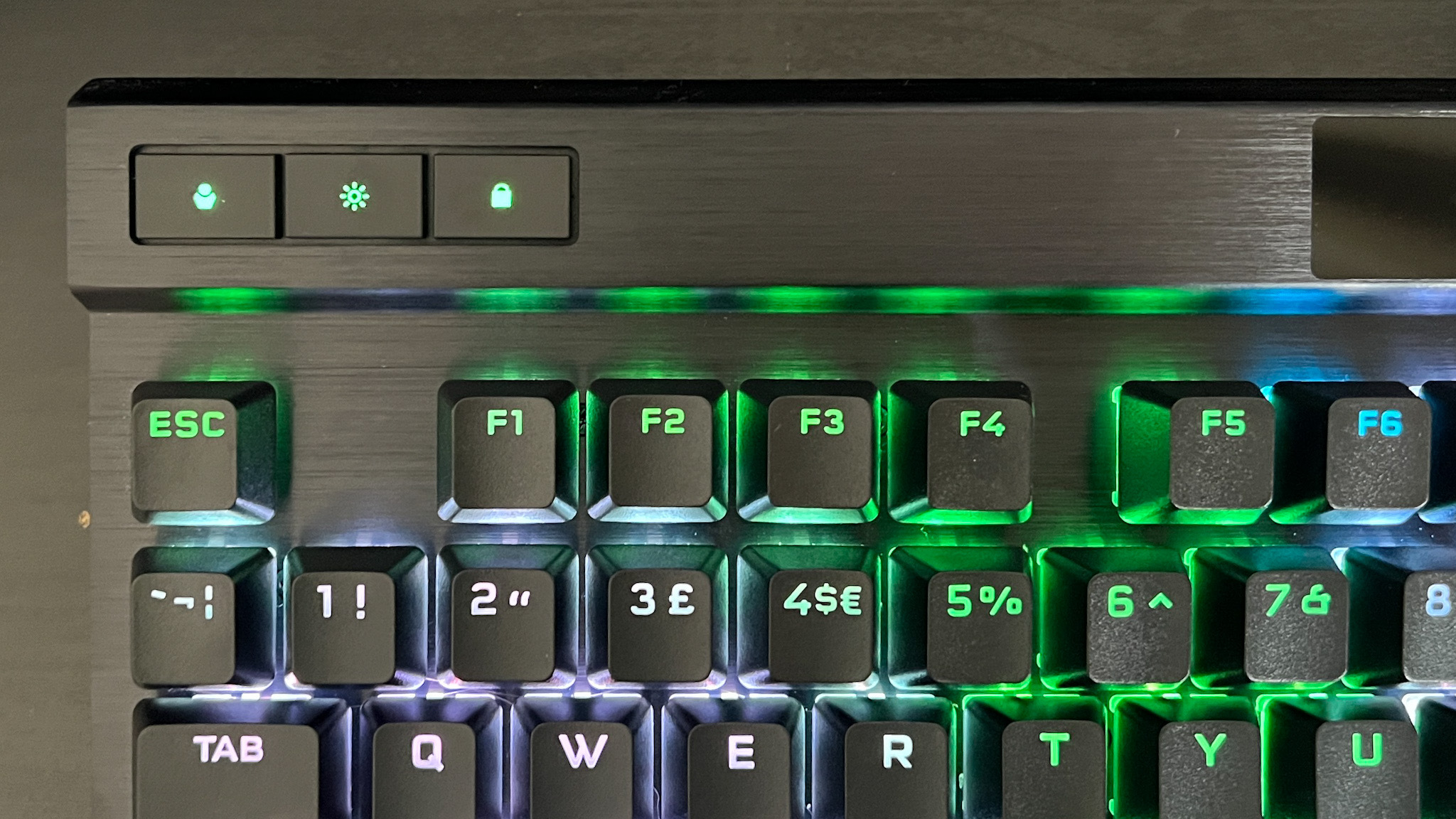
Setting up macros and onboard profiles was a doddle with the iCue software, though it was the on-the-fly macro recording that really stood out to me. I don't know if I'm cursed, but it always takes me a few tries for keyboards offering this feature to start playing ball. However, holding the lock button, setting the recording, and saving it to a key combination was slick and smooth here, and I was soon setting far too many (thankfully you can easily wipe your mistakes in iCue as well).
Should you buy the Corsair K70 RGB Pro?
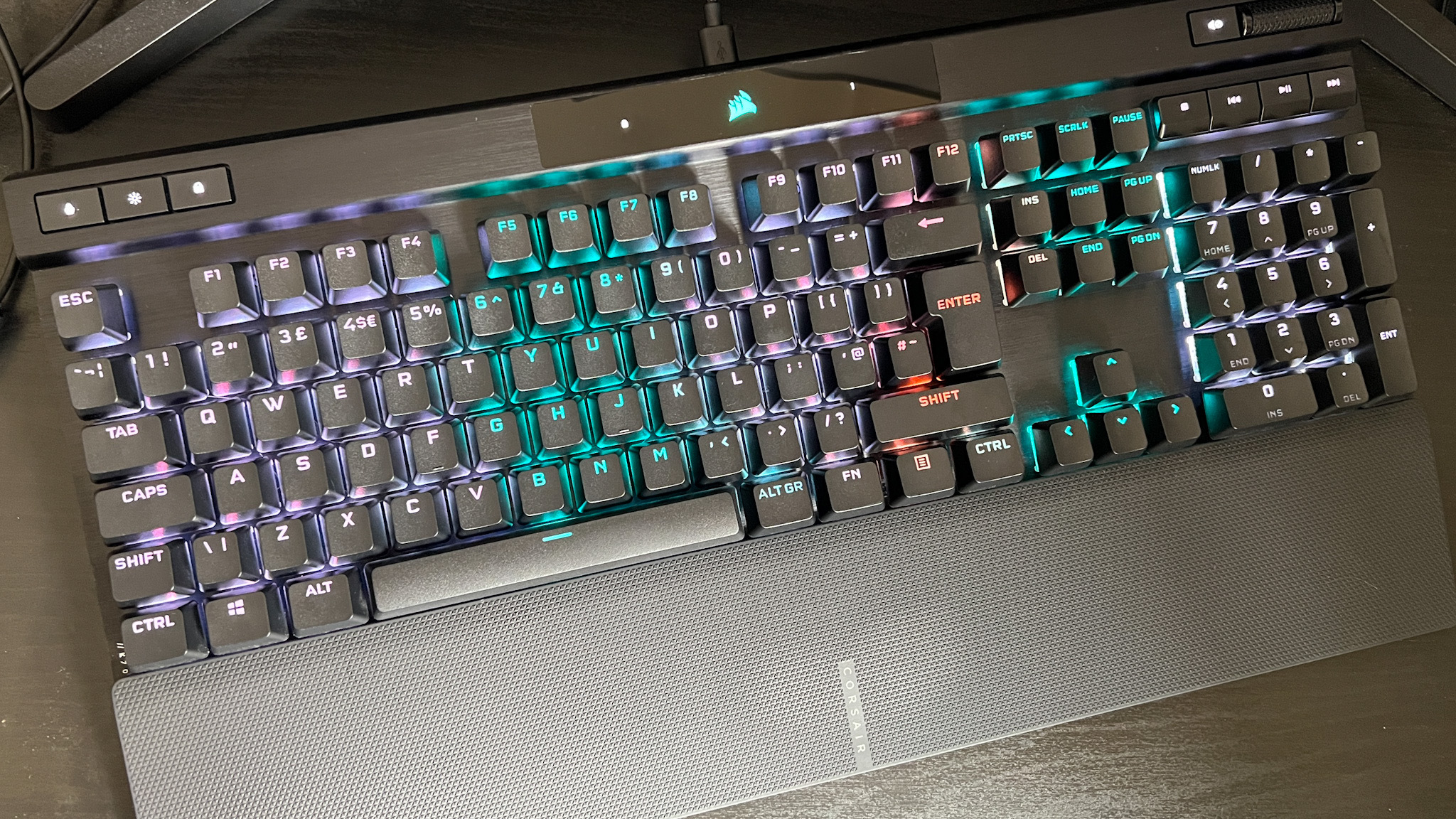
It may be a little pricier than the mid-range gaming keyboards designed for the everyday player, but the esports whizz will certainly be pleased with the $169.99 Corsair K70 RGB Pro. The sophisticated tech under the hood does make itself known in super low latency and speedy processing, and while that 8K hyperpolling still isn't a game changer, this is a feature that's still under-utilized by every keyboard I've tested that runs it.
The previous generation Corsair K70 RGB MK.2 is only around $40 cheaper than the RGB Pro when on sale, and considering the performance jump and PBT keycaps on offer there's plenty of value in going the extra mile with the new release here. However, it's worth noting that you'll be dropping USB passthrough features on the newer release.
If that's a deal breaker, we'd recommend taking a look at the Corsair K100 RGB. It's similarly built for speed thanks to its optomechanical switches, still features Corsair's AXON processing technology (though with polling up to 4,000Hz), and packs USB passthrough as well. You'll be paying more, at $229.99, so this really is one for those looking to invest in an all-in-one powerhouse. More budget-minded players could also take a look at the slightly slower HyperX Alloy Elite 2, regularly retailing for under $100 / £100 these days. You're keeping the full-sized layout, adding USB passthrough, and getting a solid level of speed for everyday play here.
How we tested the Corsair K70 RGB Pro
I used the Corsair K70 RGB Pro over the course of two weeks, alongside the HyperX Alloy Origins 65, for both work and play, putting the deck through its paces in marathon Apex Legends sessions as well as in Cities Skylines, Rise of the Tomb Raider, and Yooka-Laylee and the Impossible Lair. I used Apex Legends to test advertised 8K hyper-polling, and Keyboard Checker to validate n-key rollover and anti-ghosting. You can find out more about how we test gaming keyboards, and make all our recommendations, in our full GamesRadar Hardware Policy.
We're also rounding up all the best wireless gaming keyboards available right now, or check out the best hot-swappable keyboards for a more flexible experience. For budget buyers, though, we'd recommend starting with our guide to the top cheap gaming keyboards on the market.

Managing Editor of Hardware at GamesRadar+, I originally landed in hardware at our sister site TechRadar before moving over to GamesRadar. In between, I've written for Tom’s Guide, Wireframe, The Indie Game Website and That Video Game Blog, covering everything from the PS5 launch to the Apple Pencil. Now, i'm focused on Nintendo Switch, gaming laptops (and the keyboards, headsets and mice that come with them), PS5, and trying to find the perfect projector.
